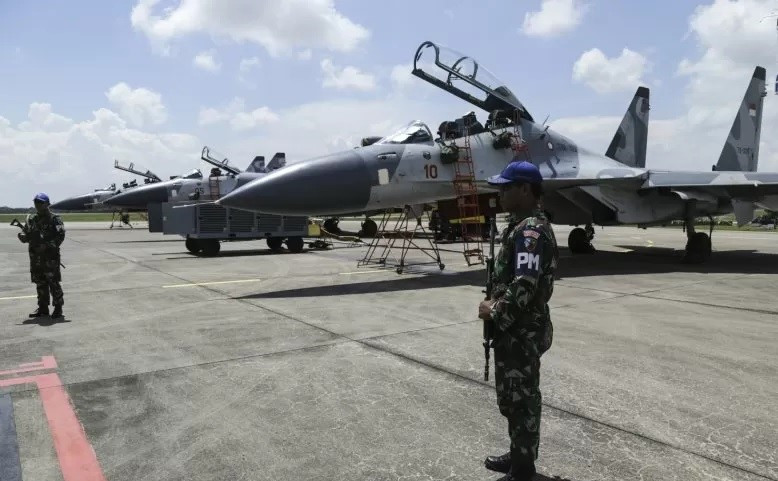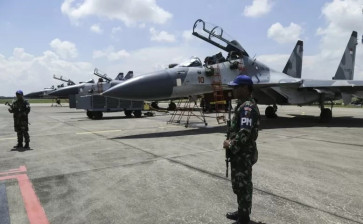Popular Reads
Top Results
Can't find what you're looking for?
View all search resultsPopular Reads
Top Results
Can't find what you're looking for?
View all search resultsUkraine-Russia crisis: Its strategic implications for Indonesia
The escalation of tension in Eastern Europe is also likely to derail the Indonesian Military’s TNI acquisition of Russian transport helicopters and armored vehicles
Change text size
Gift Premium Articles
to Anyone
W
hat started as a Russian military buildup along the country's border with Ukraine has evolved into a military incursion. On Thursday, President Vladimir Putin crossed the proverbial Rubicon by authorizing a special military operation against Ukraine.
Reports of missile strikes on major Ukrainian cities and cyberattacks soon followed the announcement. American policymakers were convinced early on that the Kremlin had decided to invade and that the military buildup of over 150,000 Russian troops along the Russia-Ukraine border and Belarus were a tell-tale sign of an offensive.
The crisis has shaken global markets and driven energy prices upward, threatening to derail global economic recovery from the COVID-19 pandemic. The escalation of tension will inevitably instigate a wider geopolitical ripple beyond the confines of Eastern Europe, affecting the Southeast Asian region and the broader Indo-Pacific. For Indonesia specifically, the continued tension in Eastern Europe has potential strategic implications that Jakarta needs to consider.
While Indonesia recently abandoned its plan to purchase Russian-made Su-35 fighters for its defense modernization program in favor of the Dassault Rafale and F-15, Jakarta will continue to operate its existing Sukhoi fighter squadron for the foreseeable future. The escalation of tension resulted in the United States imposing sanctions against Russia and there is a likelihood that Washington would escalate and/or widen its economic sanctions to compel Moscow to stand down. If this scenario materializes, Indonesia may face some difficulties in accessing supplies of critical parts and essential equipment for its Sukhoi fighters, in turn affecting the Air Force’s Sukhoi fleet’s readiness and capability to conduct military exercises and operations.
Indonesia’s defense policymakers also need to take the absence of domestic maintenance, repair and overhaul for comprehensive checks for its Sukhoi fighters into account. The issue was to be remedied under the now-scrapped US$1.14 billion Su-35 deal, which reportedly includes an offset agreement to establish a maintenance, repair and overhaul (MRO) facility in Indonesia.
Indonesia typically sends its Sukhoi fighters to Russia for most demanding maintenance and to Belarus for upgrades. To bolster resiliency and mitigate dependence on Russia, Indonesia had considered Ukrainian MRO facilities as an alternative in the past, but it never materialized. Should tension escalate further and access to Russia and its satellite states get cut off due to economic sanctions and/or other punitive measures, Indonesia needs to consider alternative MRO facilities in other countries, such as India or Vietnam, to maintain its Sukhoi fleet’s airworthiness.
The escalation of tension in Eastern Europe is also likely to derail the Indonesian Military’s (TNI) acquisition of Russian transport helicopters and armored vehicles. Indeed, the US Countering America’s Adversaries Through Sanction Act (CAATSA) has put the brakes on Indonesia’s major defense acquisitions. Washington’s set of new sanctions in response to Russian incursion, however, places these defense acquisition programs in jeopardy.



















